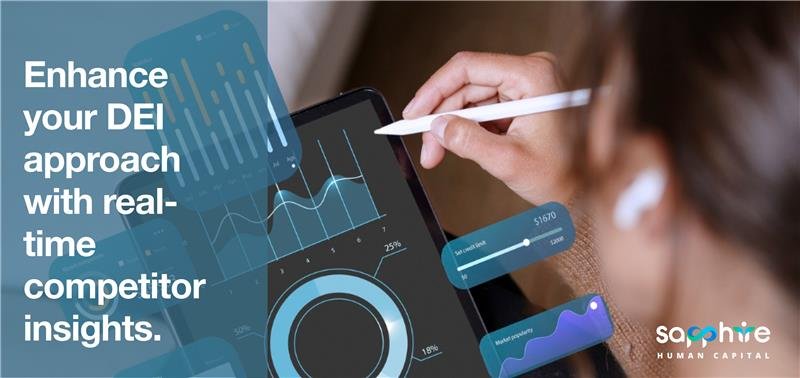
In today’s rapidly evolving business landscape, diversity, equity, and inclusion (DEI) are not just social imperatives—they’re strategic differentiators. Indian organizations are increasingly recognizing that a robust DEI strategy directly impacts innovation, employee engagement, and brand reputation. Yet, many companies still struggle with an essential component of strategic growth: keeping pace with what competitors are doing in the DEI space.This is where a Competition Tracker becomes an invaluable tool. By systematically observing and analyzing DEI initiatives across the industry, companies can gain a clearer picture of best practices, identify gaps in their own approach, and course-correct with precision.
Traditionally, competition tracking was reserved for market share analysis, pricing strategies, or product development. But in a world where inclusive values drive consumer choice and talent mobility, DEI cannot be left out of the intelligence loop.Consider this: Tata Steel publicly shared their transgender inclusion policy in 2022, setting a new benchmark for inclusion in manufacturing. Soon after, several industrial players, including JSW and Vedanta, began publishing their own inclusive workplace initiatives. This domino effect shows how competition tracking can inspire action and trigger positive systemic shifts within an industry.
Tracking the DEI playbooks of your competitors helps you identify what works—and what doesn't. For instance, in the IT sector, Infosys, Wipro, and Tech Mahindra have made headlines with women leadership programs and neurodiversity hiring. These aren’t just checkboxes; they are strategic programs tied to business KPIs.A robust competition tracker helps you answer key questions:
By benchmarking against these insights, your organization can refine your DEI strategy to stay ahead and stay relevant.
One of the biggest advantages of DEI competition tracking is discovering what your competitors aren’t doing—and using that as a strategic opening.For example, while many Indian banks have launched initiatives focused on gender diversity, very few have explored caste-based inclusion or regional representation in leadership roles. This gap is an opportunity for early movers to build a truly intersectional DEI strategy.FMCG giant Hindustan Unilever has integrated rural and underrepresented community hiring into their talent strategy, creating both social and competitive capital. Such actions help redefine industry expectations, and they offer replicable models that other companies can adapt.
DEI is not static. Trends evolve with socio-political movements, generational workforce changes, and global shifts. A Competition Tracker, when used effectively, offers real-time intelligence that supports agile decision-making.Let’s take the example of startups in India. Many unicorns, such as Razorpay and Zerodha, are openly discussing mental health and neurodiversity—topics rarely touched five years ago. They’re not just speaking; they’re acting, offering inclusive insurance coverage, mental wellness days, and support groups.Having access to such trends as they unfold allows HR leaders to make informed adjustments. It enables you to refine your DEI strategy based on what is resonating with current and future talent pools.
Here’s how to embed a competition tracker into your DEI journey:
At Sapphire Human Capital, we recommend integrating DEI competition tracking into quarterly strategy reviews to ensure your organization remains a leader—not a laggard—on inclusion metrics.
In the last two years, India’s BFSI sector has seen a quiet revolution in DEI. Axis Bank, for example, has launched the ‘ComeAsYouAre’ charter, focused on LGBTQIA+ inclusion. Following this, HDFC Bank and Kotak Mahindra Bank have started similar inclusive hiring and infrastructure policies. These responses are not just coincidental—they are competitive, reactive, and strategic.By using a competition tracker, smaller banks and NBFCs can learn from these steps, understand stakeholder responses, and develop uniquely tailored programs that elevate both social impact and market presence.
Refining your DEI strategy using competition tracking is not just about catching up—it’s about leapfrogging. Organizations that proactively study and respond to the DEI ecosystem will attract top talent, earn consumer trust, and future-proof their operations.In a world where values matter as much as value, keeping an eye on what others are doing—and doing it better—might just be your most strategic move yet.Are you ready to move beyond awareness and into action? Discover how Sapphire Human Capital’s DEI advisory and benchmarking services can help you build a strategy that’s not just inclusive—but ahead of the curve. Let’s talk.
With Sapphire, discover visionary leaders who elevate your organization to its fullest potential.
Contact us today to schedule a consultation with one of our expert consultants. We'll help you identify opportunities for growth and improvement.
Whether you’re looking for top leadership, market insights, or updates on exclusive events, share your query with us.
We are India’s most agile executive search and leadership advisory firm, with over 1,500 leadership closures across industries. We’ve placed more than 50 CEOs and 40+ Partners in top consulting firms, establishing a proven record of impact.
From building entire leadership teams for financial services houses to closing rare mandates like Chief Data Scientist for a US tech firm’s India R&D centre, we have deep expertise in BFSI, Technology & Consulting, Industrials, Infrastructure, Healthcare, Consumer, and Retail.
We executed India’s largest team movement by a search firm (65+ leaders in one transaction) and facilitated the highest-value leadership hiring deal in India.
Our Founder & CEO, Ankit Bansal, is a serial HR entrepreneur with prior experience at McKinsey, PwC, and Standard Chartered. He also co-founded one of India’s largest flexi-job platforms and is an Advisory Board member of the India Diversity Forum.
Schedule a free 30-minute discovery call with one of our consultants to discuss your specific needs and how we can help transform your business.
Book a Discovery Call
Whether you’re looking for top leadership, market insights, or updates on exclusive events, share your query with us.